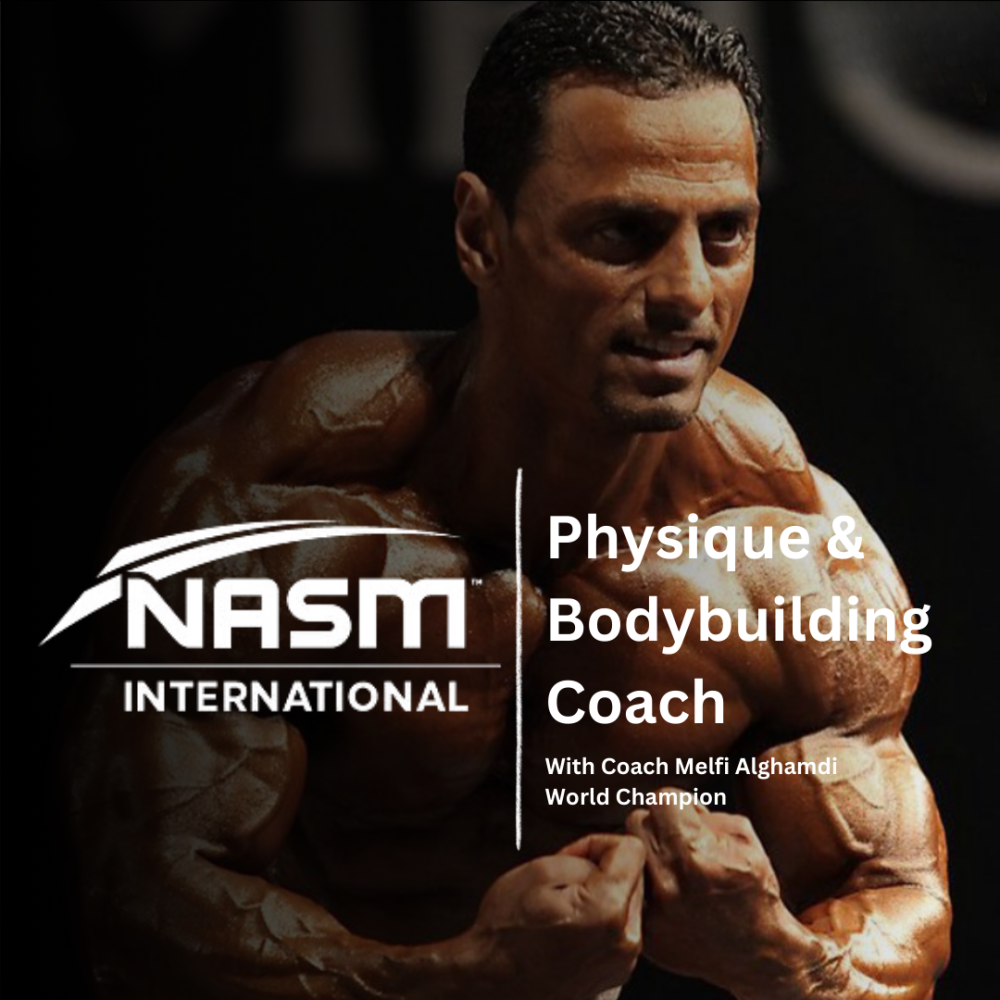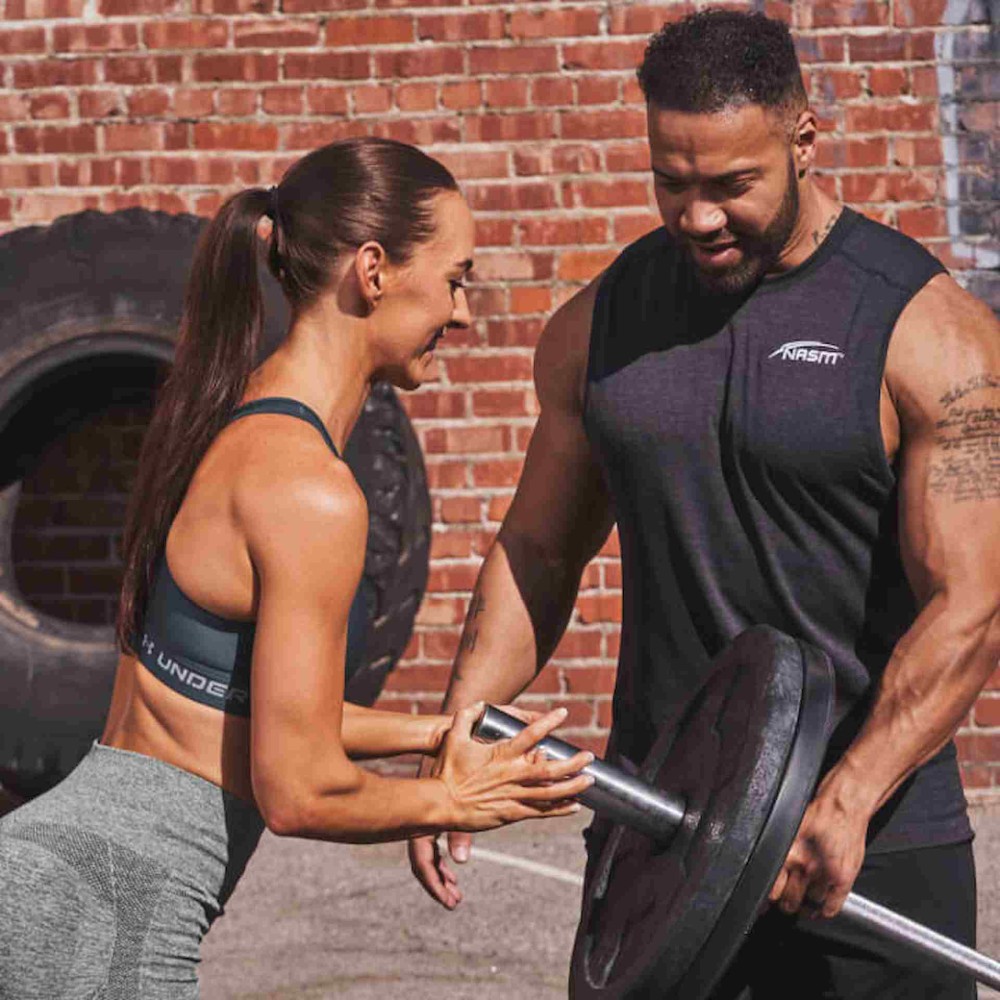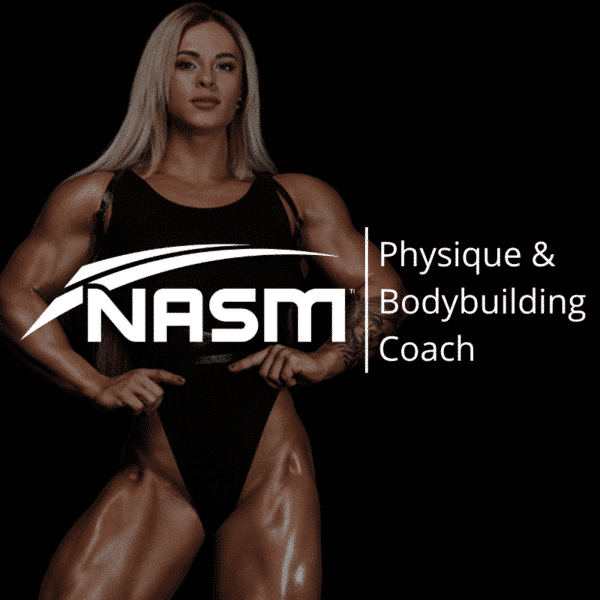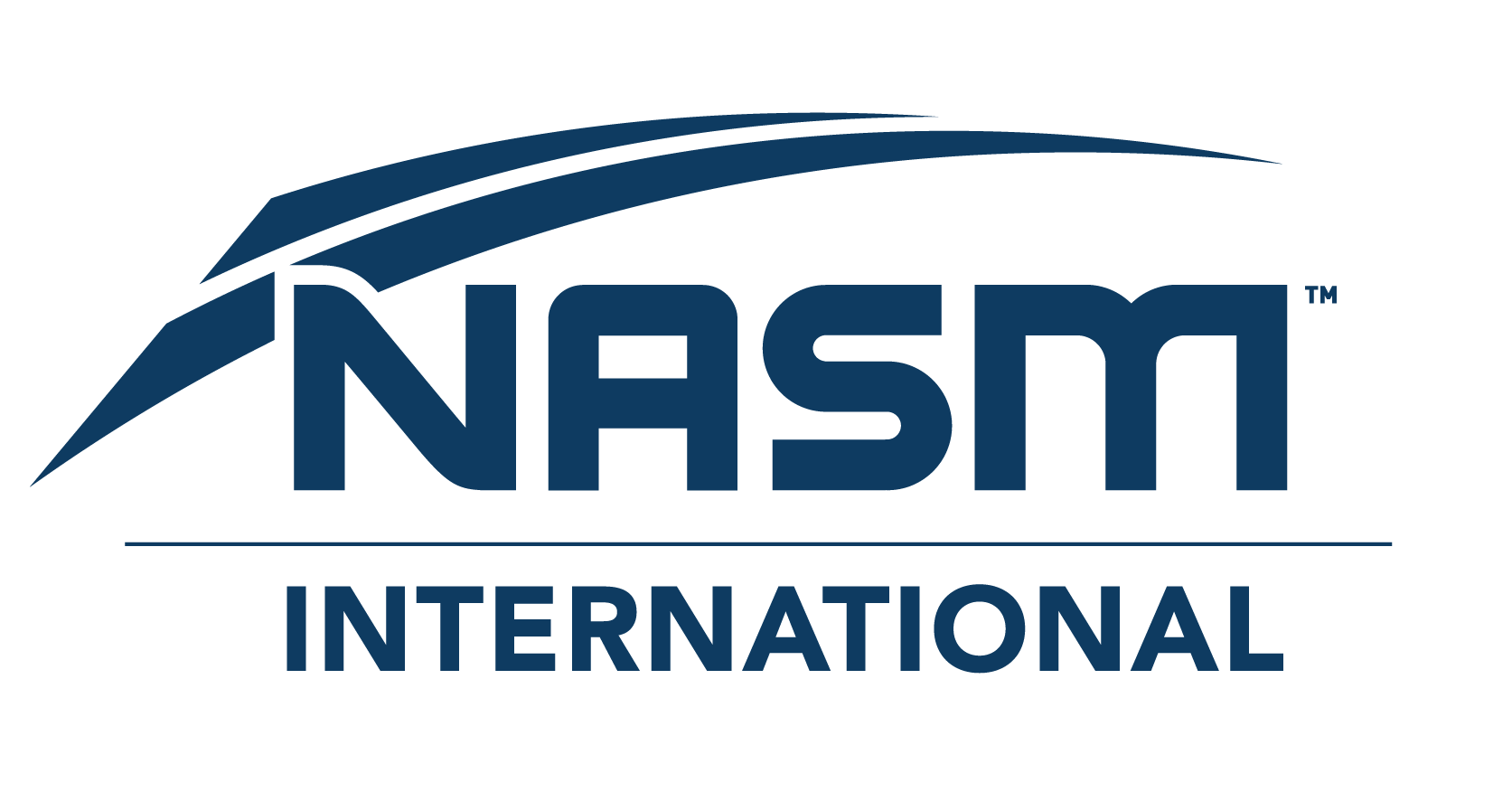About the Program
CEU Value: 1.9 NASM
Want to learn the secrets to achieving a lean, muscular physique that inspires others? Become an NASM Physique and Bodybuilding Coach and you’ll gain the tools you need to help your clients achieve their physique goals through effective weight training, diet, and supplementation.
captain Milfi Alghamdi the world champion will give from his knowledge and experience and teach this course.
Help your clients achieve the physique of their dreams through a multidisciplinary approach to losing fat, building muscle, and developing an aesthetic physique.
- Teach your clients professional techniques to step on stage for a bodybuilding competition or photo shoot.
- Boost your reputation, earnings, and client base by training athletes of all ages and physique levels.
- Master the mental game with coaching principles and mindset shifts to help your clients make the changes necessary to achieve their goals.
- Gain access to a comprehensive curriculum crafted by 23 professional physique and bodybuilding experts.
In NASM’s Physique and Bodybuilding Coach program, you’ll learn the diet and fitness secrets to help your clients reach their physique goals. With sections on nutrition, body aesthetics, exercise training principles, biomechanics of physique enhancement, and more, this comprehensive curriculum will arm you with the knowledge you need to help your clients reach their physique goals.
When you choose NASM to become a Physique and Bodybuilding Coach, you’ll get access to:
- World-class fitness & nutrition experts.
- Peer-reviewed content from the brightest minds in the industry.
- State-of-the-art digital learning platform designed to meet multiple learning styles.
- A curriculum that is consistently reviewed and updated with the most up-to-date material available.
Program Includes
- 19 In-Depth Chapters
- 23 Subject Matter Experts
- Exercise Videos
- 100% Online; Access on All Devices
- Practice Exams & Quizzes
- Downloadable Handouts
- 1 Year to Complete the Final Exam
- Specialization Certificate of Completion
Final Exam
- 100 multiple-choice questions
- 90 minutes to complete
- Open-book format
- 70% required to pass
- 3 test attempts included
Table of Content
Prerequisites
There are no prerequisites for the Physique and Bodybuilding Coach Specialization. A fitness credential or a bachelor’s degree could be helpful. This specialization is intended for fitness professionals, bodybuilding and physique competitors and fitness enthusiasts.
Section 1: Introduction to Physique and Bodybuilding Coach
Chapter 1: Welcome
Learn about the role of a Physique and Bodybuilding Coach, program objectives and how the NASM Specialization can help enhance your career.
Chapter 2: Introduction to Physique Enhancement
The learner will receive an overview of physique history and then define physique athletes and the broad spectrum of physique athletes. Physique enhancement will be discussed in terms of where it lies within the landscape of health, wellness, and sports performance.
Section 2: Physiology, Anatomy, and Biomechanics of Physique Enhancement
Chapter 3: Fundamentals of Anatomy, Physiology, and Biomechanics
This chapter provides the learner with a basic overview of gross anatomy, and the discussed bodily systems including the nervous, skeletal, muscular, and endocrine systems. The second half of the chapter examines disciplines of biomechanics and kinesiology, collectively termed Human Movement Science.
Chapter 4: Essentials of Metabolism, Energy Balance, and Fat Loss
Gain a deeper appreciation of metabolism, which refers to a living organism's chemical processes that provide energy. The ability to perform movement requires a constant supply of energy, and the process of generating kinetic energy from sources of potential energy is referred to as metabolism.
Chapter 5: Mechanisms of Muscle Hypertrophy
Introduces the physiology of muscular hypertrophy. It will discuss myofibrillar hypertrophy (in-series in-parallel mechanisms) and sarcoplasmic hypertrophy. Also learn the major mechanisms of hypertrophy: mechanical tension, muscle damage, and metabolic stress
Section 3: Nutrition Principles
Chapter 6: Macronutrients
Learn the fundamental concepts of nutrition. The chapter will describe the structure and function of protein, carbohydrates, and fats, and discuss the digestion and absorption of each macronutrient.
Chapter 7: Micronutrients and Hydration
Introduces the learner to micronutrients. The chapter will detail the differences between water-soluble vitamins, fat-soluble vitamins, and minerals. Furthermore, the implications for health and physique considerations will be discussed.
Chapter 8: Supplementation
Learn common supplements' risks, benefits, and efficacy to enhance fat loss and muscular hypertrophy, and examine myths about supplements.
Chapter 9: Performance Enhancing Drugs (PEDs)
Learn common PEDs used to enhance fat loss and hypertrophy. This chapter will educate the Physique Coach regarding the dangers of commonly used PEDs such as anabolic steroids and stimulants.
Section 4: Body Aesthetics, Fitness, and Nutrition Assessments
Chapter 10: Fitness and Body Aesthetics Assessments
Teaches the Physique Coach how to perform a comprehensive fitness and body aesthetics assessment as related to the physique athlete. The chapter will introduce the preparticipation health screening process before undergoing various physiological, posture, and body composition assessments.
Chapter 11: Nutrition Assessment
Provides a basic introduction to healthy eating habits, the dietary guidelines, and the components of healthy eating patterns. Next, the chapter will discuss a detailed approach to assessing a client’s dietary intake.
Section 5: Exercise Training Principles
Chapter 12: Warm-up, Recovery, and Injury Prevention
Teaches the Physique Coach how to implement a corrective exercise warm-up to reduce injury risk, increase joint mobility, and muscle activation.
Chapter 13: Resistance and Core Training
Learn scientific and application aspects of resistance training to the aspiring Physique Coach. The chapter also discusses core training, and it will begin by describing the benefits of core training.
Chapter 14: Cardiorespiratory Training and Non-Exercise Physical Activity
Introduces the learner to established cardiorespiratory training guidelines and applications. Also learn the effects of cardio training and NEAT on body composition (fat loss, muscle gain, muscle atrophy).
Chapter 15: Coaching Principles
Understand essential coaching principles to help motivate and support physique athletes through their journey. The chapter will briefly overview psychology and behavior change and how these principles apply to coaching physique athletes.
Chapter 16: Exercise Programming
Understand exercise programming for physique athletes and examine various program protocols and how they apply to the physique athlete. Review two in-depth case studies and how resistance training programs were developed for these personas.
Chapter 17: Nutrition Programming
Learn various nutrition programming strategies for physique athletes including determining calorie needs, macronutrient targets, and nutrient timing and periodization. Review three example case studies.
Chapter 18: Peaking for Competition or Personal Goals
Learn important nutrition and exercise training components for physique athletes trying to peak at their time of competition. Learn the important considerations when preparing for a physique/bodybuilding competition.
Chapter 19: Physique Transformation Sustainability
Identify strategies for preventing hyperphagia after reaching a physique milestone. The chapter will detail long-term
Can I apply my NASM-PBC CEUs toward my NASM CPT recertification?
You are required to earn 1.9 CEUs, in addition, you also have to earn 0.1 CEUs from the CPR/AED certification for a total of 2.0 CEUs to get the recertification.
Does the NASM-PBC certification expire?
No. Once you pass the final exam, your Physique and Bodybuilding Coach specialization with NASM will never expire.
strategies for sustaining gains made during the physique transformation.
Program duration
It starts from 3:00 pm - 7:00 pm * The time and days are expected to change according to the training schedule*
6 Live lectures - two days a week - 4 hours per lecture
Live lectures




